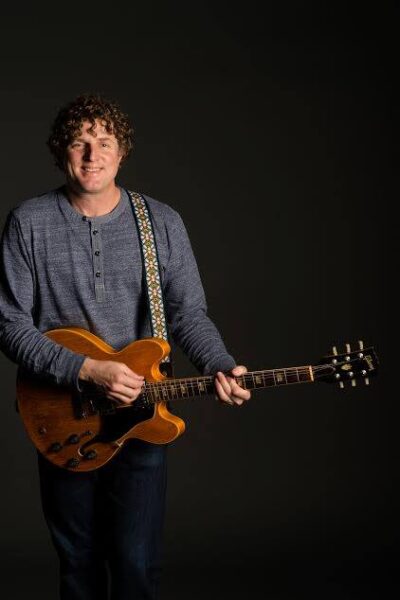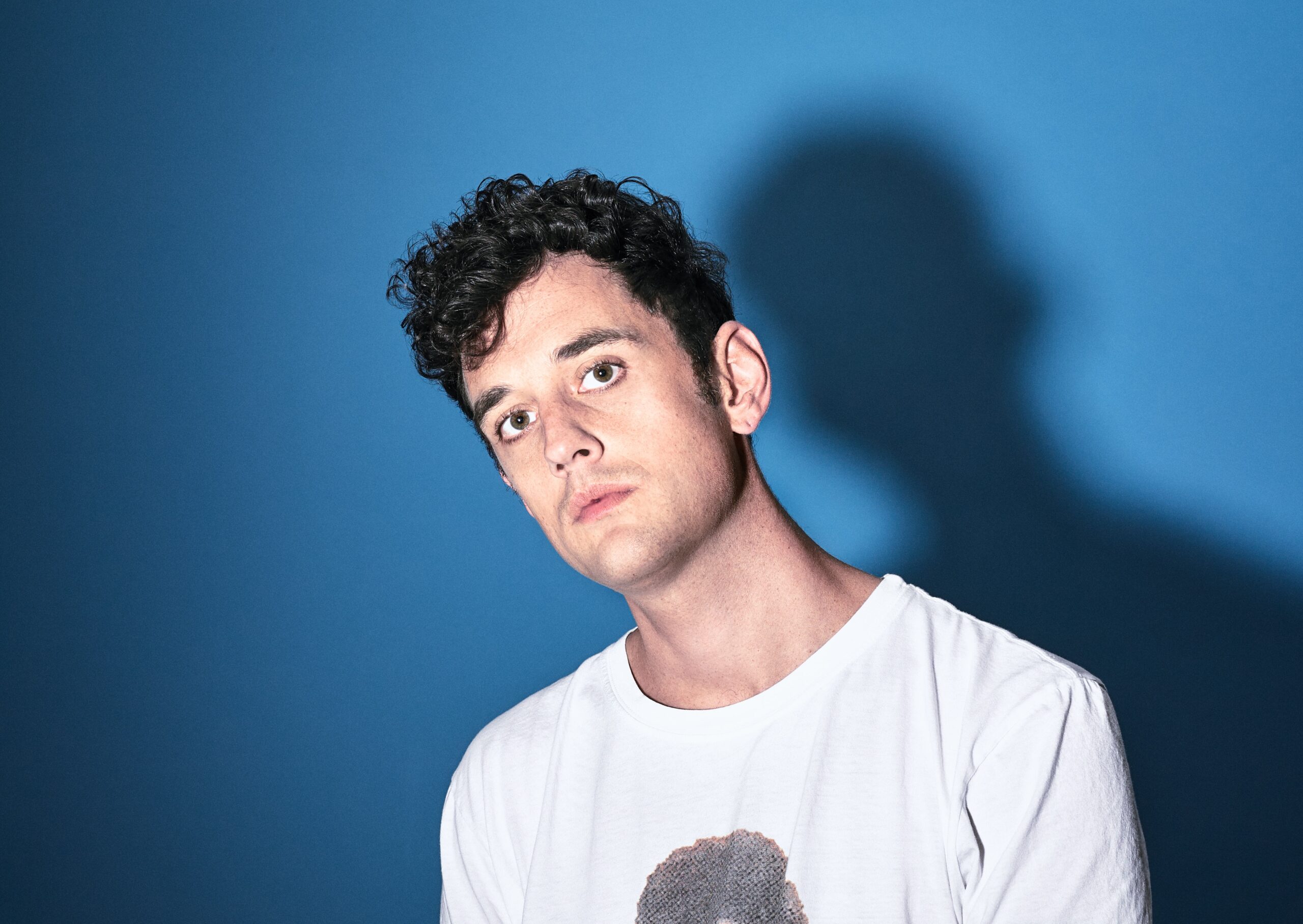Starting a Career in Music
This interview was originally published in March, 2014.
Mark Bryan is a founding member, songwriter and the guitar player for the multi-platinum band Hootie & the Blowfish. In 2009, he founded Chucktown Music Group, a boutique music company focused in producing and releasing music in new innovative ways while helping local and regional acts get exposure.

Mark shared his own experiences with building a successful music career and some tips about what artists need to do to make a real living in the Digital Age. He also offered some advice for new and emerging artists that want to stay true to their passion for making music and navigate the business side of the industry.
Musician Coaching:
Thanks so much for taking some time to talk to me, Mark. From your vantage point, what do artists need to do to make a living in the current music industry?
MB:
The standard answer for that is obviously that artists need to tour, first and foremost. I think if you can establish yourself as a live act with a solid set of music, you can start to make a living right there. Then it’s about finding the right market or markets to be able to continue to do it.
Musician Coaching:
And I know things have changed a lot since Hootie & the Blowfish released Cracked Rear View, your very successful major label debut, which came out in 1994. So, you’ve been through the traditional, pre-digital system of touring and bringing a song to radio. My recollection of your story is that you guys were doing exceptionally well with no label whatsoever; you were touring, making a name for yourself and bringing your music to stores without major label help. While certainly the mechanisms for artists running their own careers have changed in the Digital Age, the ethos behind that process is very similar to how it used to be. How did you manage to get the attention of Atlantic back then?
MB:
It’s funny that the same model is still in place. If you talk to any A&R person at a label now, they are still looking for bands that have already established themselves on their own at that level. We went out and toured as much as we could.
Fortunately for us, in the Southeast at that time, it was easy to gather 15-20 markets where we could draw 1,000 people, which we were able to do over three years of really grinding it out and building that fan base. When you’re playing to that many people, and they start buying your CDs, the labels see those numbers and think, “Who is this band I’ve never heard of that is selling as many copies in their region as the bigger acts are?” And they start to pay attention. I think it can still work that way.
But, regardless of whether we’re talking about getting signed or not, the original question you asked was about establishing a real career as a musician in the music industry. And as an artist, I think the way to do that is just to make sure you have that live show you can count on and that is making people come back to see you. That way, if nothing else happens, you have that foundation as your bread and butter.
Beyond that, there are so many ways now aside from record labels to get your music noticed and heard. The first thing that comes to mind is a great video. A viral YouTube video can do as much for an act now as pretty much anything else. I think that’s an exciting thing that should give young artists a lot of hope.
And licensing your music is another avenue now. We’re seeing songs get broken through TV shows and film as quickly as they were through radio in the past. There are just so many other avenues that help artists that are up and coming do something aside from shopping their music to labels, which used to be the only thing they could do.
Musician Coaching:
That was the Holy Grail.
When it comes to live shows, in order for you to be successful, there has to be a certain percentage of people in the room that like what you’re doing so they will come back for more. And there’s no sure-fire way to teach people to write hit songs. You quickly mentioned that when you were starting out, you got 15-20 markets where we could draw 1,000 people, but I would love to know more about that process. Is there anything you think you did well business-wise that your peers did not in order to make that happen? Because, even expanding beyond their home city and home market can be so tough for bands.
MB:
Well, you said it a minute ago: It’s about having material that people want to come back and hear. I think we were fortunate to have a sound that appealed to a lot of people during that time. For whatever reason, that’s just how the chips fell for us, so there was some good fortune in there.
We were also listening to what was going on around us. We were big fans of REM and lots of other similar bands, so we also adopted their approach to their careers. I think that really helped us with touring and how we set up our business. But we were also writing songs we knew appealed to people. There’s one element of your art where you’re doing it for yourself and what you feel is right. And there’s another element of it that is you giving a nod to something you know people would like to hear.
Musician Coaching:
Was putting those elements that other people would like in your music a conscious decision?
MB:
No. It wasn’t about us changing our songs. It was just a feeling. If you’re going out and buying songs you want to hear, then when you sit down to write songs, you want to write songs that other people want to hear. It’s not a conscious decision you make, where you say, “I’m going to make this song this certain way.” It’s just a feeling you have that informs your creative process and comes through the music.
As a musician, if I hear a song I that makes me feel a certain way, I want to go write a song that makes other people feel that way. That’s the only part of the process that is somewhat conscious: I want to create a thread that runs through the music and makes people want to come back to it. And as you said, there’s no formula for that; it’s just a feeling. And that feeling has always been there for me, ever since I was a kid. And as I’m writing music today, it’s still there. If I’m getting excited while I’m writing a song, then I know that other people will be excited too.
Musician Coaching:
And you guys were also surprisingly adept at remaining down to earth, despite all your success. That was what first struck me when we met at Atlantic years back. What was the hardest part about being in the limelight?
MB:
It was combining the business aspect – which we were just learning at the time – with that creativity I was describing earlier and the drive we had to go around and build our fan base, play shows and write material that was relevant. They are two completely different things, and when you combine the two, it can get tricky. We didn’t really understand the business side of it. And as we were learning it, we were trying to adapt. There were certainly some awkward moments for me, especially on awards shows and when meeting with industry people. I was often asking myself, “What does this have to do with what we’re doing?” But in that situation, those things actually have a lot to do with what you’re doing, because they’re how you’re sustaining your career.
Musician Coaching:
You guys also had a label and signed other artists, and now, of course, you’re running a music company yourself. You’ve been on the business side of it for a long time.
MB:
Yes, and when Hootie & the Blowfish was making our second record, Cracked Rear View was doing really well on the charts, and Atlantic was really cool about letting us go in and make our second record, because we were just ready to do it. Then, all of a sudden, nobody could decide what the first single should be, because the label wanted to sustain the success of the first album; they wanted that same feel, and we had written a bunch of new material that represented where we were at that point. There was suddenly this rift in opinions about what the next song we put out should be. We wanted the single to be representative of the new direction we were taking, and the label wanted the single to sound like our older material.
Issues like this come up as you’re going through the process of building your career, and it can be awkward. Many of them are good problems to have, but they are problems nonetheless.
Musician Coaching:
It can be hard to take for an executive or a music business person when they hear, “It’s a business decision based on my gut feeling about a song.” Single picking is very difficult.
Tell me a little bit about what you are up to now with Chucktown Music Group. You’re producing and writing with artists. I read somewhere that you’re also doing something with music education.
MB:
Yes. I’m still active creatively – writing songs and producing other artists. I will always do that, because I just love it.
Also, the College of Charleston came to me about five years ago and asked if I wanted to be involved in this burgeoning music industry concentration they were developing. I said, “Yes,” and designed an intro to music industry course that I started teaching as an adjunct professor. Then, they offered me a position to help develop the whole concentration. I took the job.
We now have 18 credit hours of music industry courses at the College of Charleston. I’ve been helping decide which classes we can develop, who should teach them, how we can get kids internships and jobs within the industry. And I’ve been also helping develop an advisory council and several other different aspects of the program. It’s been a great job. It’s a perfect thing for me to be doing while I’m off the road. It’s a great use of my contacts and experience, so I’m really enjoying it.
Musician Coaching:
Good for you. That’s great.
I imagine that when you’re producing a band now, you’re playing both therapist and mentor to a lot of the people you’re working with. Are there any new challenges you notice they are facing today that you didn’t face when you were coming up?
MB:
It’s not that much different. As a producer, my job is still to present their music in the best possible way and bring the best out of the artists I work with. That’s the same as it was when we were working with producers as we were coming up. I learned that craft from all those producers and that I have to be the coach of a project.
I think the difference is in digital recording and how much you can do now. Back then, everything was analog and acoustic. Now you can technically make a whole track without anyone even playing an instrument. That’s the big thing I notice: If somebody brings me a certain song, we don’t necessarily have to put a band on it. Back in the day, you had to find the players to help you. Now you can make the whole song in the box if you have to.
Musician Coaching:
I’m sure bands are asking you business questions, too. Are their concerns about releasing music similar to what yours were back in the ‘90s, or has digital changed those concerns as well? What advice are you giving them?
MB:
I always first tell them, first and foremost that they have to be able to go out and play live. Unless you have a sustainable live show, you’re going to fall away quickly. You need to get that going.
From there, it’s about using all the tools that are available and doing the most you can with your own music. You need to do everything a label would do for your music for yourself until you can get signed. And as I said earlier, there’s so much you can do with your music in this day and age that managing all of it becomes a 24-7 job for whoever is managing you or your band.
I tell bands I work with that they need to take the music we’ve produced and make a video, get it on TuneCore, register it with ASCAP or another performance rights organization and put it as many places online as you can. And as you know, there are so many ways to market and sell your music online now. It’s up to the artist to decide which ways are best for them to market what they’re doing. If you do this, you can start making little bits of money right away – within the first year. If you can combine all these efforts with touring and build a touring base, you can do really well.
Musician Coaching:
What would be the one piece of advice you would give yourself when you were just starting out, based on everything you’ve learned throughout your career? I know it’s a difficult question.
MB:
It’s actually easy for me to answer, because it’s what I’ve done, and it’s worked well for me: Stay true to the music. I know that sounds sort of cliché. But if this passion that you have for music is what got you into it and to whatever level you’re at – making a recording or releasing a recording – then stay true to that passion in all the decisions you make, regardless of whether those decisions are about touring, signing a record deal or digitally distributing your music. You have to keep the core of it about what got you there in the first place. It’s so easy to lose sight of that once you start getting involved in the business side of the industry. This advice applies to artists and managers, because a manager would not have become involved in music if they were not passionate about it. For everybody, it’s about staying true to that initial passion that got them going with it and keeping that fire burning. Because, once things get tricky down the road, that passion is this great thing that you can always go back to. It feels good on the inside, and you wonder, “Why didn’t I just think about this in the first place?”
I can sit here at 46 and say that I am just as passionate as I was at 16. I have a lot of different skills and different interests in the industry than I had when I was 16, but I still have that burning feeling I felt the first time I heard “My Generation,” and it made me jump around in my bedroom. I still feel that way about what I’m doing musically, and even feel that way about helping students and kids get involved in the industry. It feels so good to say I am just as passionate about that as I am about making my own music. It feels so good to have someone come back to me and say, “Wow, that was great advice you gave me, and this is really working out for me.” That’s just as exciting to me as when a song I wrote connects with somebody, and it’s all still coming from that initial passion I had for music.
To learn more about Mark Bryan and his work, visit the Chucktown Music Group website. You can also follow him on Facebook and Twitter.









